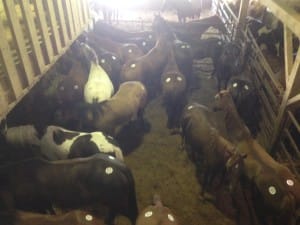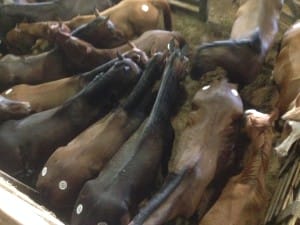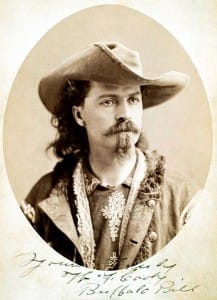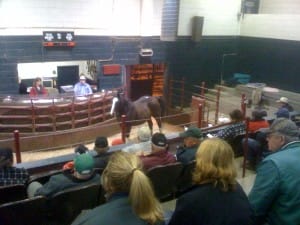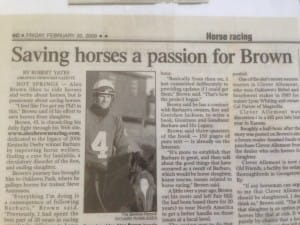Horses at Sugarcreek. Unwanted or just Unlucky?
A couple of weeks ago I asked a question on Facebook, “Do you think there is such a thing as ‘unwanted horses’”. The question was the result of a conversation I had previously had with some influential animal welfare lobbyists in Washington DC; they claimed there is no such thing, it is simply pro slaughter propaganda.
I disagreed. I suggested I had seen plenty of ‘unwanted horses’ during my visits to kill auctions and feedlots over the last several years.
The reaction of posing the question to Facebook has been very interesting, with plenty of opinions supporting both answers. I will try my best summarize some of those points of view.
One theme of answers simply supports my own thinking; yes, there are plenty of ‘unwanted horses’, sadly, and we need to develop better solutions for the problem of unwanted horses. None of us is advocating that horse slaughter is the right solution, but we understand that it is one of the current solutions.
A second theme, the opposite theme, is that there are no unwanted horses. “I would save them all”, “I want them, therefore they cannot be unwanted”. While this sentiment is quite popular, it is obviously unrealistic, and gets to the semantics of the meaning of the word “unwanted”. These animals are not unwanted by everyone, just by those that currently own them.
They are not universally unwanted, but nor can they be universally rescued, even in a world of perfect information.
A theme similar to the above, is something like, “I want the horse, but cannot afford it.” So while the horse might not be truly unwanted, it is an economic burden which means that there is a population that might want, but cannot have, a horse. In addition, plenty of people purchase a horse, but then cannot afford the long term financial obligations that purchase creates, which puts the horse in jeopardy. A horse is expensive.
Another theme, there are no ‘unwanted horses’, by definition there is a kill buyer buying horses, so they are wanted, for the slaughter pipeline. Well, that is somewhat some of my initial point, the slaughter business helps take care of the ‘unwanted horse’ problem, as do horse rescues, rehab organizations and anyone else who is a customer of a horse seller.
This answer also does not cover the horses even the kill buyers choose not to purchase; I have seen them turn away from horses in the ring that do not fit the type of horse they seek.
Some argue that kill buyers outbid rescues in an attempt to acquire horses for the slaughter pipeline. This argument was not covered in the conversation thread above. While this is true, I have witnessed it, it is anecdotal at best, and occurs somewhat infrequently. A kill buyer may be needing to complete a load that will be shipped shortly, so finishing up that load creates this behavior. My own experience suggests that there are usually plenty of horses available to kill buyers without them needing to bid against those seeking to save the horses.
Others noted that the behavior of dumping horses, to let someone else deal with the problem, is simply symptomatic of the society in which we live. A culture of “instant gratification”, before we move on to the next cool thing. Or the horse simply gets old, injured, is no longer useful, fast, pretty, or whatever. Sadly I think that is probably correct.
Horses can live long lives, oftentimes their useful life (as a racehorse, sports horse, or working horse) is far shorter. The horse switches from an asset, generating dollars, to an economic burden. Oftentimes, owners of these horses’ economic relationship is such that they will only keep the horse while it is an asset. Those horses then become unwanted by those owners as soon as they become a liability.
The reality is, semantics aside, there are horses that in certain circumstances, find themselves in jeopardy. Whether we call them “unwanted”, or “unlucky”, they are at risk for slaughter.
By denying there is an unwanted horse problem, we won’t come up with the appropriate solutions needed to ensure we can end horse slaughter. We also lose credibility in the horse slaughter debate. If we deny something that most people actually agree exists, it damages the credibility of other claims we might make about the horse slaughter system.
My series, Horses: Sports, Culture, and Slaughter focuses some of its attention on the issue of unwanted horses, as well as the myriad other arguments that are used to support or end horse slaughter.

